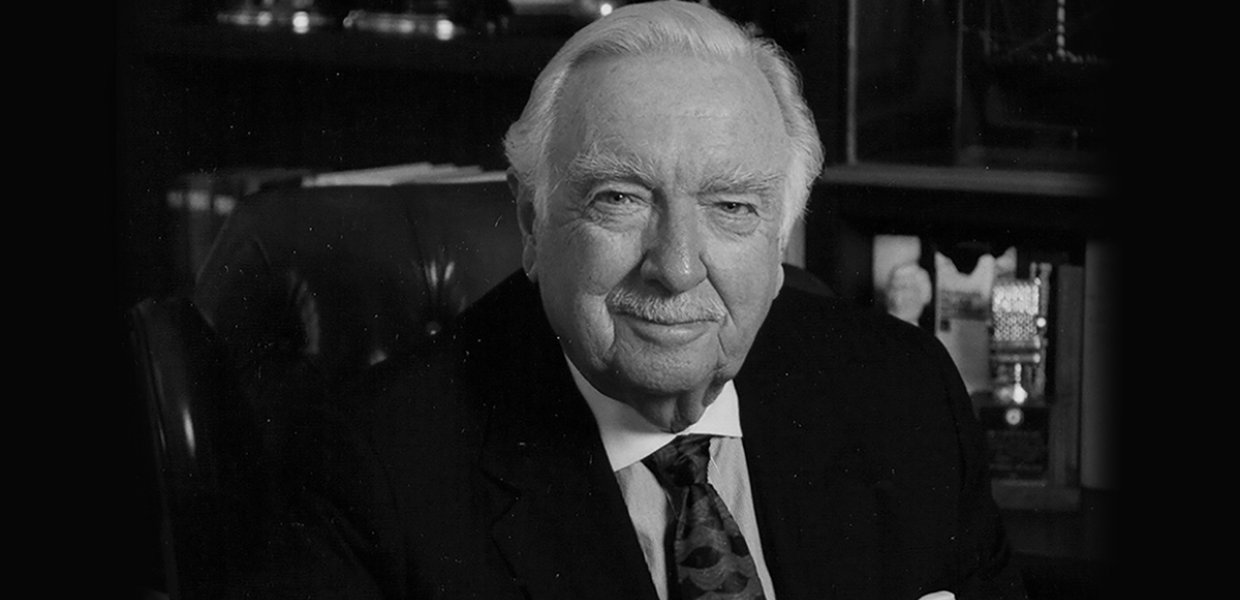After an election year that witnessed the denial of science, a racial reckoning and an assault on American democracy, this year’s Walter Cronkite Awards shine a spotlight on journalism that seeks truth, examines inequities, serves the public and demonstrates the indispensability of a free and trustworthy press.
Presented every two years since 2001 by the USC Annenberg School for Communication and Journalism, the awards are administered by the school’s Norman Lear Center.
“In his time, Walter Cronkite had the courage to report the reality of the Vietnam War to the American people,” said Annenberg professor Marty Kaplan, director of the Lear Center. “In our time, these Cronkite Award winners have the courage to report that reality really exists.”
For the first time, entries were limited to three subject-matter categories: systemic racism, the coronavirus pandemic and the integrity of elections. A record 177 were received. These winners were announced today:
PBS FRONTLINE, “Policing the Police 2020”
This long-form account of Newark’s half-decade struggle to fix the relationship between its police department and its Black residents was hailed by the jury as “thoughtful, balanced and inspiring.” “What this story does — beautifully — is illuminate,” judges said about the work of correspondent Jelani Cobb and filmmakers James Jacoby and Anya Bourg, “shedding light on police reform without drama or hyperbole, using a story of abuse and intolerance to bring a sense of calm and search for solutions,” not only for policing, but also for education, housing, health care and other systems permeated by racial inequity.
12 News, KPNX (Phoenix), “The Work is Hard and Not Done: Being Black in the Valley”
The Tegna-owned NBC affiliate wins for its documentary of systemic racism seen through the long lens of the Black experience in Arizona. Its “highly compelling” archival footage was applauded by the jury for “providing a historical perspective on racism in Arizona over nearly the last century.” “Every single interview” with experts, community leaders and residents “carries so much emotion.” Past and present are “seamlessly strung together” into “an impactful narrative that is not broadly known, and that makes you realize how much has changed and how much more needs to be done.”
CBS News, “Bravery and Hope: 7 Days on the Front Line”
Judges lauded this harrowing documentary about a Bronx hospital at the pandemic’s epicenter as “moving and at times heartbreaking, a first draft of history, an extraordinary public service.” CBS News veterans Guy Campanile and Mitch Weitzner secured “remarkable access” for Campanile and CBS News producers Andrew Bast, T. Sean Herbert and Gilad Thaler. “At immense personal risk,” they let ER and critical care workers, patients and loved ones tell their stories without a correspondent or narration, “capturing their dedication, horror and exhaustion,” and cutting through the fog of misinformation and disinformation.
CNN, “Coronavirus Outbreak in China”
David Culver’s reporting was among the first to emerge from Wuhan before the outbreak was declared a pandemic. The 24 hours that Culver, producer Yong Xiong and photojournalist Natalie Thomas spent in Wuhan on the eve of lockdown provided essential contacts for months of reporting from Beijing, starting with a two-week quarantine. They were the only foreign TV network team to speak with whistleblower Dr. Li Wenliang; two weeks later, Culver was live on air and reported news of Li’s death when it broke. The jury recognized CNN’s “exceptional real-time access. They were right where and when they should have been.”
TMJ4 News (Milwaukee), “Unemployment System Collapse”
Wisconsin’s pandemic shutdown brought its dangerously outdated unemployment system to the breaking point, failing thousands of people, some becoming homeless while waiting for benefits. This Scripps-owned NBC affiliate used social and broadcast media for struggling Wisconsinites to tell their own stories, and for the station and its nonprofit partner, Wisconsin Watch, to hold government’s feet to the fire, helping citizens collect hundreds of thousands of dollars in unemployment back pay. The jury commended the TMJ4 I-Team’s “great storytelling and selfless tenacity” as “a great example of journalism as a public service.”
NBC Montana, Maritsa Georgiou’s reporting on “USPS Blue Box Removals”
In a pandemic election year particularly reliant on voting by mail, the U.S. Postmaster General implemented nationwide policies whose effect was to gum up and slow down mail delivery. When he put those measures on hold, NBC Montana’s Maritsa Georgiou “clearly had a hand in it,” the judges said. Her “dogged” reporting for this Sinclair-owned station broke the story of mailbox removal in Montana, especially in Democratic areas. “She shined a light on practices that could have disenfranchised Montanans”; her reporting rippled across the nation, prompting more coverage and “ultimately bringing about change.”
CNN, Dr. Sanjay Gupta’s pandemic fact-checking
Presented in tandem with the Cronkite Awards by the Annenberg Public Policy Center of the University of Pennsylvania, the Brooks Jackson Prize for Fact-Checking goes to Dr. Sanjay Gupta, CNN’s chief medical correspondent, for his correction of COVID-19 misinformation. The jury praised him as an important voice throughout the pandemic and in many formats. He delivered on-air fact-checking segments, participated in town halls and hosted a COVID-19 podcast. “Dr. Gupta has been a consistent and reliable messenger for accurate information. He delivers the facts clearly and states them with purpose and authority.”
The awards will be presented at a virtual ceremony this summer. For more information, including the winning entry videos, visit www.cronkiteaward.org.
